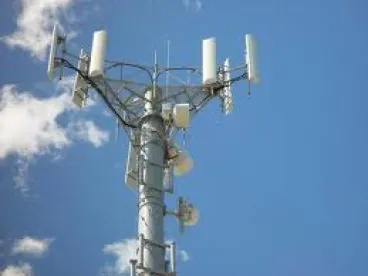On April 25, 2023, the Federal Communications Commission (“FCC”) released an Order and Notice of Proposed Rulemaking (“Order” and “NPRM”) that seeks to better safeguard U.S. telecommunications networks and infrastructure through changes to the international section 214 authorization process. In particular, the FCC adopts a one-time collection of foreign ownership information from current international section 214 authorization holders and proposes rules that would require carriers to renew, every 10 years, their international section 214 authority, among other things. The deadline for responding to the information collection will be at least 30 days following the effective date of the Order, as announced by the Office of Management and Budget, and comments and reply comments on the NPRM will be due 30 days and 60 days, respectively, after Federal Register publication.
Background on International Section 214 Authority
All companies that seek to offer international services originating or terminating in the U.S. must first obtain international section 214 authority from the FCC. During the international section 214 authorization application process, the Committee for the Assessment of Foreign Participation in the United States Telecommunications Services Sector (the “Committee”) analyzes the national security and law enforcement risks of a company’s proposed operations. After the authorization is granted, however, the FCC has no way of receiving updated information about a carrier unless it files an application to modify, assign, or transfer control of its authorization or notifies the FCC of a discontinuance.
The FCC Adopts an Information Collection Requirement for All Current International Section 214 Authorization Holders
In an effort to update the FCC’s foreign ownership records, the Order establishes a one-time collection of foreign ownership information for all current international section 214 authorization holders. As part of the information collection, each international section 214 authorization holder will be required to identify its 10 percent or greater direct or indirect foreign interest holders that hold such equity and/or voting interests (i.e., reportable foreign ownership), as of 30 days prior to the filing deadline. Relatedly, the FCC’s Enforcement Bureau recently issued an Enforcement Advisory that reminds FCC licensees of their obligation to seek FCC approval prior to ownership changes that result in new reportable foreign interest holders or increases in existing foreign ownership interests.
Each international section 214 authorization holder will also be required to certify the accuracy of the ownership information provided as part of the information collection. If an authorization holder surrenders their authorization before the deadline, they are not required to respond to the information collection.
The FCC proposes to cancel the authorizations of carriers that fail to respond to the information collection and deem their failure to respond as presumptive evidence that the authorization holder is no longer in operation. The FCC proposes to publish a list of all carriers that fail to respond to the information collection in the Federal Register and provide those carriers an additional thirty days to comply with the information collection requirement.
The FCC Proposes Several Modifications to the International Section 214 Authorization Renewal Process
To assess evolving national security, law enforcement, foreign policy, and other risks, the FCC proposes requiring all international Section 214 authorization holders, with or without foreign ownership, to renew their authorizations every 10 years or, in the alternative, update their information periodically. The FCC also proposes to adopt a renewal schedule that prioritizes the filing and reviewing of renewal applications based on whether the carrier currently has reportable foreign ownership, the length of time since the FCC’s most recent review of the authorization, and whether the authorization is subject to a mitigation agreement. For renewal applications that do not have reportable foreign ownership, the FCC proposes to adopt streamlined and simplified procedures to reduce administrative burdens.
For renewal applications, the FCC proposes to calculate equity interests held indirectly in the carrier by successive multiplication of the equity percentages for each link in the vertical ownership chain, regardless of whether any particular link represents a controlling interest below it in the chain. The FCC proposes to calculate voting interests held indirectly in the carrier by successive multiplication of the voting percentages for each link in the vertical ownership chain; however, where the voting interest for any link in the chain is equal to or exceeds 50 percent or represents actual control, it is treated as if it were a 100 percent interest.
The FCC Proposes Several Changes to the Application Requirements for International Section 214 Authorizations
Five Percent Threshold for Reportable Foreign Ownership Interests. To better capture foreign interests, including those associated with a foreign adversary country, the FCC seeks comment on adopting a new five percent ownership-reporting threshold for applications for international section 214 authority, which would require disclosure of five percent or greater direct and indirect equity, and/or voting interests in the applicant. The current foreign ownership-reporting threshold is 10 percent direct or indirect equity in the applicant. According to the FCC, the five percent threshold is consistent with other relevant federal reporting requirements, including the ownership threshold used by the Committee in its review of applications that are referred to it by the FCC. The FCC also proposes to require all authorization holders to report their reportable ownership and other information on an ongoing basis, starting every three years after the grant of a renewal application. The proposed rules are already causing concern in the private equity community, which argues that, if adopted, the five percent foreign ownership threshold could potentially threaten future investments in telecommunications networks and infrastructure.
Current and/or Planned Services and Geographic Markets. The FCC proposes to adopt rules requiring applicants to provide information about their current and/or planned future services and geographic markets where they offer service in the U.S. The information required would include (1) identification and description of the specific services they provide and/or will provide using international section 214 authority; (2) the types of customers that are and/or will be served; (3) whether the services will be provided through the facilities for which the applicant has an ownership, indefeasible-right-of use or leasehold interest or through the resale of other companies’ services; and (4) identification of where they currently and/or in the future expect to market, offer, and/or provide services using the particular international section 214 authority, such as a U.S. state or territory and/or U.S.-international route or globally. The current rules do not require applicants to provide the FCC with specific information about the services they provide and/or will provide, the facilities they use and/or will use, or other information related to their operations in the U.S. and abroad, pursuant to the international section 214 authority.
Foreign-Owned Managed Network Service Providers. Because of the security vulnerabilities that may arise when a foreign-owned entity is provided access to U.S. telecommunications networks and infrastructure, the FCC proposes requiring all applicants to identify whether or not they use and/or will use foreign-owned managed network service providers.




 />i
/>i


